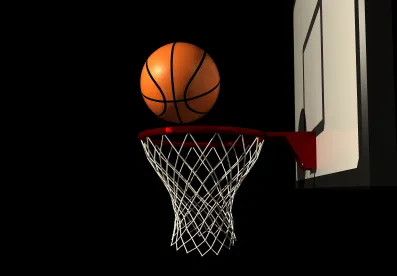A recent National Labor Relations Board (NLRB) ruling that the men’s college basketball players at Dartmouth College were employees of the school, as well as other legal challenges to establish the employment status of college athletes, could upend the structure of college sports and have unintended immigration consequences for international athletes competing at U.S. schools.
Quick Hits
- Momentum to classify NCAA athletes as employees may impact international athletes’ immigration status and jeopardize their participation in NCAA sports.
- Most student visas limit holders’ ability to work while studying in the United States.
- Changes to U.S. immigration law may be necessary to allow international athletes to continue to participate in NCAA sports moving forward.
In the Dartmouth College case, an NLRB regional director found that the players on the Dartmouth men’s basketball team, which competes in the National Collegiate Athletic Association (NCAA) Division I, are employees under the National Labor Relations Act (NLRA). The players have since voted in favor of union representation, though the school is reportedly declining to bargain as it challenges the regional director’s ruling.
The case is just the latest development in a series of legal challenges to the “amateur” status of college athletes and NCAA rules limiting athlete compensation, including additional organizing efforts at other schools, the expansion of name, image, and likeness (NIL) rights, and litigation over whether college athletes are entitled to minimum wage and overtime pay under the Fair Labor Standards Act (FLSA).
The growing momentum for these efforts, which seek to expand economic opportunities for college athletes, raises serious questions with regard to the immigration status of the thousands of international students who participate in NCAA sports (such as men’s and women’s college basketball) and could potentially jeopardize the ability of international students to continue to participate in NCAA sports.
Visa Restrictions
According to recent data from the NCAA, more than 3,100 of first-year athletes in NCAA Division I sports—the highest level of NCAA sports—were international students in 2022, accounting for 12.8 percent of first-year athletes. Notably, international students represented 15 percent of the first-year athletes in men’s basketball and 13 percent in women’s college basketball in 2022.
Citizens of foreign countries must obtain a U.S. visa to attend college in the United States and participate in NCAA sports. That means international NCAA athletes are subject not only to NCAA eligibility requirements, but also to the complicated framework of U.S. immigration laws and regulations that restrict their ability to work in the United States.
Overall, there are potentially several visas that international students may hold, but each has its own restrictions and may not be available for all international athletes. These visas include the following:
- F-1 Visa: The F-1 student visa is a nonimmigrant visa that allows foreign citizens to attend school in the United States. Students on F-1 visas are allowed to work under certain circumstances, but there are restrictions and limitations imposed by the U.S. Department of Homeland Security (DHS).
- J-1 Visa: The J-1 visa is an exchange visitor visa that allows individuals to participate in educational and cultural exchange programs in the United States. Some foreign athletes may come to the United States on J-1 visas if they are part of a specific exchange program that facilitates participation in NCAA sports.
- O-1 Visa: The O-1 visa is for individuals with extraordinary ability or achievement in their fields, including athletics. Some elite international athletes may qualify for O-1 visas if they have achieved a high level of success in their sports and are recruited by NCAA institutions to compete at the collegiate level.
- P-1 Visa: The P-1 visa is for internationally recognized athletes and entertainers who are coming to the United States to perform at a specific event or competition. Some international athletes may qualify for P-1 visas if they are competing in NCAA-sanctioned events or championships.
- B-1/B-2 Visitor Visa: While not specifically designed for athletes, some foreign athletes may enter the United States on B-1 (business visitor) or B-2 (tourist visitor) visas to participate in short-term competitions or training events. However, these visas do not allow for long-term academic study and are not suitable for NCAA athletes enrolled full-time.
The most commonly used visa for international athletes is the F-1 student visa, which is a nonimmigrant visa that allows foreign citizens to attend school in the United States. The F-1 visa allows holders to work under certain circumstances, but there are restrictions and limitations imposed by DHS. Specifically, F-1 visa holders must pursue a “full course of study” to maintain their immigration status and are limited to twenty hours per week of on-campus employment while school is in session.
Failure to comply with U.S. immigration laws and regulations could have serious consequences for NCAA athletes, including termination of their visa status, removal from the United States, and potential disqualification from future visa status or permanent legal residence in the United States.
NCAA Sports Participation
Visa restrictions generally have not prevented international students from participating in NCAA sports, since playing college sports has not been viewed as employment, but rather voluntary participation in an extracurricular activity. Moreover, NCAA rules traditionally prohibited paying compensation to athletes for playing college sports (i.e., “pay for play”) and restricted the benefits that college athletes may receive to scholarships and related costs of college attendance.
However, if college athletes are considered employees, schools might have to take steps to ensure continued compliance with immigration laws and rules, including the twenty-hour-per-week work restriction for those on F-1 visas. That might require schools to monitor and ensure that international athletes spend no more than twenty total hours per week on participation in team activities.
Yet college athletes have argued that their participation on college sports teams typically exceeds twenty hours per week, particularly during the season, meaning international students might be at a disadvantage or could potentially be unable to participate. Further, assuming that it is possible to meet the twenty-hour threshold, it is unclear whether sports participation, which typically requires travel around the United States (and sometimes internationally) for competitions, would classify as allowed on-campus employment.
International athletes may need to obtain additional authorization from U.S. Citizenship and Immigration Services (USCIS), such as an Employment Authorization Document (EAD), and in situations where a union represents athletes on a college team, the union may need to be involved in the labor certification process.
Union Membership
The regional director’s ruling in the Dartmouth case, in particular, found that the players on the school’s men’s college basketball team were employees within the meaning of the NLRA and had the right to organize and bargain collectively over the terms and conditions of their employment.
The Dartmouth case involved a set of college athletes in a team sport at a private university who competed in NCAA Division I basketball, the highest level of NCAA competition. The NLRA only clearly applies to athletes at private schools and it is not settled whether the same reasoning used by the regional director would apply to athletes in sports outside of men’s college basketball. Still, the decision, especially if it is affirmed, will likely fuel a wave of similar organizing efforts across NCAA sports.
Union membership could have additional implications for international college athletes. Certain unions may require members to be U.S. citizens or permanent residents. College athletes in the United States on nonimmigrant visas may be ineligible for membership in such unions or may not be eligible for all the protections provided by unions.
Additionally, while the NLRA generally protects participation in union activities, such as organizing or other protected concerted activity, such activity may have additional implications for international college athletes’ immigration status. Such union activities, even if lawful under the NLRA, could pose concerns for immigration authorities, and could potentially violate some terms of visa status or employment authorization.
Name, Image, and Likeness Rights
Questions concerning whether international students are allowed to be paid while playing college sports have already arisen with regard to NIL rights, following the NCAA’s move in July 2021 to lift restrictions on college athletes profiting from their NIL.
While the NCAA has since sought to reign in NIL, a move that was blocked by a federal judge in Tennessee, the door is open for college athletes to sign promotion, endorsement, and advertisement deals. Further, it has led to the formation of collectives, groups of fans, and alumni who join together to form companies that provide athletes at affiliated school athletics programs with paid NIL opportunities.
But earning money from NIL is more complicated for international students due to immigration restrictions. Some international students have sought NIL deals in their home countries or otherwise tried to structure deals in ways to avoid immigration restrictions.
In 2022, a basketball player from the Dominican Republic made headlines when he secured an O-1 temporary worker visa for those with extraordinary ability or achievement in their fields that allows him to sign NIL deals. Still, that player’s situation was unique, in that he had gained popularity for being able to play basketball at a high level despite having only one arm before playing basketball at an NCAA member institution.
Alternatively, some college athletes have reportedly been able to obtain P-1 temporary worker visas to be allowed to earn money from NIL. Specifically, the P-1A Athlete visa requires the athlete to be either internationally recognized in his or her sport or be a member of a foreign league or association.
Still, while O-1 or P-1 visas may allow some international students to be paid for NIL, eligibility for these visas is contingent on special circumstances that might not apply to all international athletes and may not be scalable to cover the thousands of international students in NCAA sports. Moreover, it is not clear that either O-1, P-1A visas, or other visa options allow college athletes to be employees.
Some federal lawmakers have urged DHS to make the necessary regulatory changes to allow international college athletes to profit from their NIL, the same as non-international college athletes. Yet it is unclear whether such changes will be made to open the door for NIL rights for international students, or whether there is support for broader legal and regulatory changes to address the employment concerns.
Looking Ahead
It is not clear whether the NLRB regional director’s decision in the Dartmouth case will stand, but the momentum to change college sports and open up more economic opportunities for athletes does not appear to be subsiding. Changes to U.S. immigration law may be necessary to clarify the rights of international athletes to take part in these opportunities in a similar manner as their U.S. teammates and to ensure they are allowed to continue participating in NCAA college sports in the United States moving forward.






 />i
/>i
